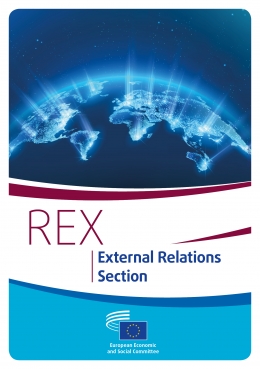European Economic
and Social Committee
Latinamerika og Vestindien
EØSU har samarbejdet med sine søsterorganisationer i Latinamerika og Caribien siden 1990'erne. Udvalget har i adskillige af sine udtalelser fokuseret på forbindelserne med disse regioner både på regionalt, subregionalt og nationalt niveau. EØSU's prioriteter omfatter udvikling af civilsamfundsorganisationer, økonomisk og social udvikling, regional integration og multilateralt samarbejde.
På regionalt niveau arrangerer EØSU hvert andet år møder mellem repræsentanter for civilsamfundsorganisationerne i Europa, Latinamerika og Caribien som led i forberedelserne til topmødet mellem EU og CELAC.
På subregionalt niveau er der oprettet adskillige permanente strukturer. I 2009 lancerede EØSU i samarbejde med Brasiliens økonomiske og sociale råd en rundbordsdialog for civilsamfundet med henblik på at skabe et forum for dialog og fortsat samarbejde mellem repræsentanter for det europæiske og det brasilianske civilsamfund. Ved associeringsaftalen mellem EU og Chile fik EØSU mandat til sammen med sin chilenske modpart at nedsætte et blandet rådgivende udvalg med henblik på at følge med i gennemførelsen af aftalen. Dette udvalg blev endeligt nedsat i 2016. For så vidt angår landene i Det Andinske Fællesskab, deltager EØSU i den interne rådgivende gruppe, der overvåger frihandelsaftalen mellem EU og Colombia, Peru og Ecuador. Desuden deltager EØSU i det rådgivende udvalg Cariforum-EU, der overvåger den økonomiske partnerskabsaftale mellem EU og Cariforumlandene. Der er etableret permanente forbindelser med EØSU's institutionelle pendanter i Mercosur (det økonomiske og sociale rådgivende forum) og Centralamerika (det rådgivende udvalg for det mellemamerikanske integrationssystem).




